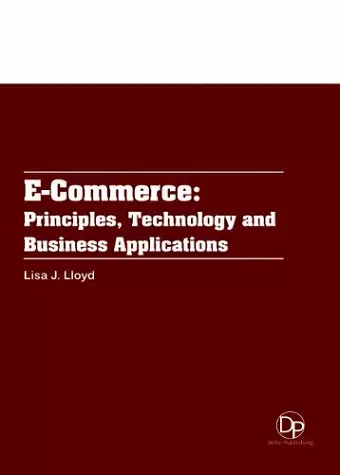E-Commerce
Principles, Technology and Business Applications
Format:Hardback
Publisher:Delve Publishing
Published:30th Nov '16
Should be back in stock very soon

Electronic commerce or E-Commerce is a term for any type of business, or commercial transaction that involves the transfer of information across the Internet. At its core, E-Commerce refers to the purchase and sale of goods and/or services via electronic channels. E-commerce was first introduced in the 1960s via an electronic data interchange (EDI) on value-added networks (VANs). The medium grew with the increased availability of Internet access and the advent of popular online sellers in the 1990s and early 2000s. Amazon began operating as a book-shipping business in Jeff Bezos’ garage in 1995. EBay, which enables consumers to sell to each other online, introduced online auctions in 1995 and exploded with the 1997 Beanie Babies frenzy. Like any digital technology or consumer-based purchasing market, e-commerce has evolved over the years. As mobile devices became more popular, mobile commerce has become its own market. E-commerce covers a range of different types of businesses, from consumer based retail sites, through auction or music sites, to business exchanges trading goods and services between corporations. E-commerce allows consumers to electronically exchange goods and services with no barriers of time or distance. Electronic commerce has expanded rapidly over the past five years and is predicted to continue at this rate, or even accelerate. In the near future the boundaries between “conventional” and “electronic” commerce will become increasingly blurred as more and more businesses move sections of their operations onto the Internet. Business to Business or B2B refers to electronic commerce between businesses rather than between a business and a consumer. B2B businesses often deal with hundreds or even thousands of other businesses, either as customers or suppliers. Carrying out these transactions electronically provides vast competitive advantages over traditional methods. When implemented properly, E-Commerce is often faster, cheaper and more convenient than the traditional methods of bartering goods and services. Electronic transactions have been around for quite some time in the form of Electronic Data Interchange or EDI. EDI requires each supplier and customer to set up a dedicated data link (between them), where E-commerce provides a cost-effective method for companies to set up multiple, ad-hoc links.
ISBN: 9781680957112
Dimensions: unknown
Weight: unknown
317 pages